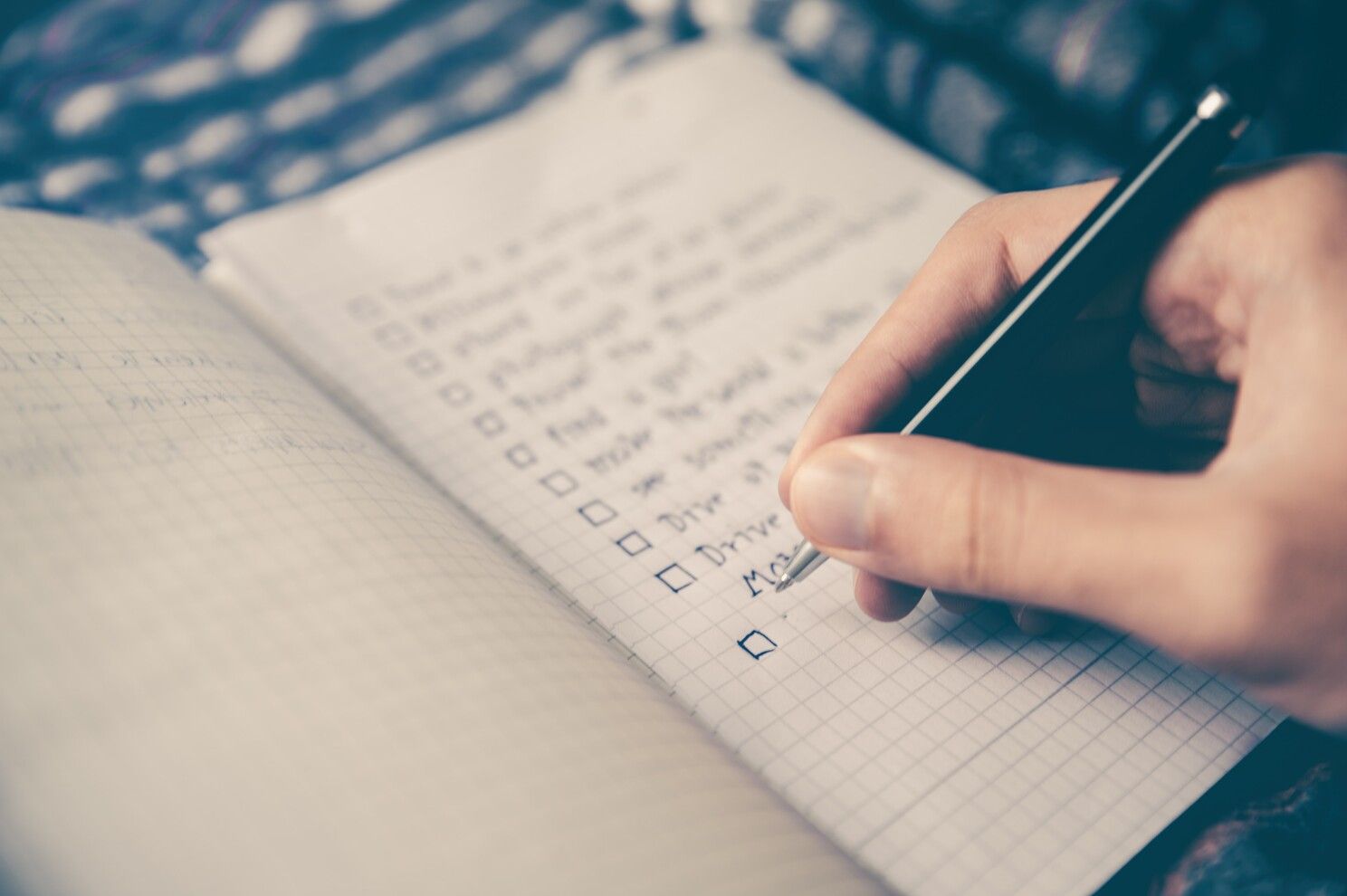
Work Efficiency: Finding Balance to Make the Most of Your Time at University
Post Contents
A bit about me
I’d like to sum myself up as obsessed. Whether that may have been healthy or unhealthy at points in my life, I was obsessed about being at uni and my degree, obsessed with cultivating an upbeat positive life and obsessed with productively utilising my time.
I completed my Bachelor’s and Master’s in Mechanical Engineering at the University of Leeds, achieving a 1st class degree. I am now working in Software and Web Development. I was also very proud and grateful to get into Leeds as a Plus Programme student via the Access to Leeds programme , which offers students who may struggle to get into uni lower entry requirements. My time at uni truly was one of the greatest periods of my life, and I’d like to share some insights into tapping into the limitless pool of opportunity, joy and learning experiences that it has to offer.

Finding Balance at University and Why It’s Important
Over my 4 years at Leeds, I developed a reputation along the lines of “this guy is alllwaaays working”. At points this was true, Mechanical Engineering can be a really tough course with what felt like relentless coursework deadlines. I would spend many of my evenings working late into the night with no time limit. To me working hard meant working as many hours as possible, and as someone who can be a bit of a perfectionist, this led to quite inefficient work habits. However, later in my university journey it probably seemed to others that I was non-stop, but I had actually finally started to find a rhythm of doing what I wanted when I wanted. I had started to find a balance that suited me.

Working non-stop was a surefire way to burn myself out, feel like I had no “free time”, and miss out on all the other great things university had to offer besides studying. Yet, once I had refined some systems and habits that suited me, I found myself having more time to do the things I wanted to, despite my workload going up. It turned out I could achieve greater balance, and have more freedom, as I became smarter with how I worked.
Techniques and Tips to Capitalise on Your Time
My final year was my busiest, I was completing my Master’s and had taken on a part-time role as a Software Development Intern, so I had a lot of work. But alongside this, I was extremely aware that it was my final year as a UoL student, so I wanted to make the most of the social life and societies I had at uni. It was during this year that I really refined what worked for me to free up more of my time but still achieve what I wanted to in my degree programme. The following tips and techniques may not work for everyone, but I do believe there is a lot of power in them, and adopting one or two could certainly help you work more efficiently.
The Pomodoro Technique
This is quite a popular and well-known technique, but it is definitely worth the mention. The premise of the Pomodoro Technique is splitting your study/work sessions into work and rest periods, just the same as you would if you were exercising. I will generally pick a task and work in 30-minute chunks, then give myself a 3-5 minute break where I’ll listen to some upbeat/fun music, get out of my seat, have a little stretch or go for a quick walk somewhere to get a change of scenery (yeah sometimes I would just walk a lap of Eddy B and go back to my seat). Fresh air is also very good! Then after you’ve done 4-5 rounds of work-rest periods, have a slightly longer 10-20 minute break.
Experiment with how long you can work for, maybe you can start off with 20-25 minute work timers and work your way up. Your ability to focus intently on your task will strengthen like a muscle the more you use it in this way. Also, try not to just go on your phone and scroll social media or message your friends during your short breaks, doing these social-based activities require parts of your brain responsible for navigating social situations to fire up, and you’re trying to stay focussed, plus you may get sucked into a hole of scrolling for much longer than your short break.

Key Benefits:
- Maximise your output - having regular breaks keeps your concentration and performance tip-top, just like if you were to break up a 10km run with regular breaks.
- The timer puts pressure on you to make you work more intently, like being in an exam hall compared to working at home. It gives you purpose.
- When you’re struggling for motivation, deciding you’ll work for just 20-30 minutes to start off will often give you the momentum you need to work for longer periods of time or on intimidating tasks.
- Tune out distractions - when the timer is on you are in super-focused mode. Nothing can distract you, you are focused on one task and avoid all distractions (such as your phone!).
I use the Forest App on my phone to set my work and rest timers. It’s a great app and has some useful features to keep things interesting and analyse your work habits.
Turn Off Phone Notifications
This is probably one of the best decisions I’ve ever made but granted it takes some getting used to. My phone is on Do Not Disturb Mode 24/7, I allow phone calls to come through, but other than that my phone never pings every single time I receive a message or notification. I think having your attention constantly pulled away can be very damaging to your focus and how present you are with what you’re doing, whether that’s uni work, relaxing, or spending time with friends.
You don’t have to go as extreme as this (although I really believe it is worth it once you take the plunge), but this is at least worth doing during your Pomodoro timers so you don’t get distracted. Look for the DnD settings on your phone. I also enable a feature on my phone called Focus Mode (on Android) which disables certain apps from being used or showing notifications altogether.
Key Benefits:
- More focused and present with your active tasks.
- Generally a clearer and less distracted mind.
- A lot more present when you’re with the people you care about! (Not work related…)
Plan, Plan and Execute!
The previous two tips maximise how much work you can get done in a particular amount of time. This tip is where you start to realise your newly found time. Planning made all the difference by giving me structure, accountability on tasks to be done, and clear guidance on when to stop working. I like to plan in a little notebook so I can easily scribble ideas or changes to my day, as well as being able to lay it out in a way that makes sense to me. Here was my general process:
- Plan the week: On Sunday, I would write down 15-20 tasks I wanted to get done. Don’t be overly broad (e.g. “Do coursework X”) or overly specific (e.g. “Fix margins on document layout”), but somewhere in the middle. Break big tasks down into components that can be tackled this coming week, such as “Complete 1000 words of essay Y” or “Complete questions 1-10 of problem sheet Z”.
- Plan the day: The night before is the best time to plan your day, it loads the tasks into your head and ensures you hit the ground with a clear path when you wake up. Take tasks out of your weekly task list, you can break down the weekly tasks further if it makes sense to do so. Set 2 primary tasks (these are your priorities and must be completed before anything else, start on them as soon as you begin work, they should also be your most important or difficult tasks), up to 3 secondary tasks (these should be done after your primary tasks are completed and are less important and not as urgent), optional tasks (don’t set too many of these, but if there are any smaller, low effort/admin type tasks you need to do add them in here and complete them once everything else is done).
- Work the day: Now you are set up, complete your uni work like it’s your job. Set what time you will start working and what time you will end working. This is non-negotiable (most of the time…), make sure you’re at your desk working during these hours and focus on the fact if you work really hard, you have the rest of the time you put aside to be totally guilt-free time off. I would also log what time I left and returned for my lunch break.

Tip: When setting your daily tasks it can be useful to set yourself an amount of time to work on something rather than an actual outcome.
For example, rather than “Complete methodology of Assignment X”, I would often write “Assignment X methodology (2 hours)“.
This means I don’t put myself down or overwork if I can’t hit a specific target which may have been unattainable. Just because I didn’t have enough tangible output, it doesn’t mean my 2 hours of work was pointless. Obviously, this can’t always be the case if you have an imminent deadline, but it’s a great way to make daily progress when you have multiple things you need to work on.
Key Benefits:
- You have a plan and are keeping track of what you need to get done day-to-day and week-by-week. Hopefully, you’ll find you are falling behind far less as well!
- You prioritise your work so the most important tasks are being completed first.
- You are motivated to get your work done, so you can enjoy that sweet sweet time off at the end of the day.
- When you’re not working, you’re not working - it’s much more refreshing to enjoy your time off doing things when there is no guilt of “oh I could be doing more work”.
Get In the Zone and Set a Routine
Try to create a working environment that suits you and develop habits or cues which make you feel ready for work. This will be completely different for different people, do you like the quiet or listening to music? Do you work better at home or in the library? Can you have your phone on you, or do you need to switch it off or leave it in another room?
Developing a good routine and environment helps cue your brain to be ready to work. For example, starting at the same time each day or working in a particular room. Some habits I liked were:
- Sitting down at my desk with a coffee (sometimes regular but sometimes decaf so I didn’t get too hooked on caffeine!) and reviewing and visualising my plan for the day.
- Listening to instrumental playlists like jazz, hip-hop beats or electronic music, often with noise-cancelling earphones if others are around or I’m in a noisy environment.
- Starting my Pomodoro timer and switching on my “study light” - simply a lamp I would switch on to condition myself to be in work mode when that light was on.
- Similar to above, I experimented with playing the same song each time I started working for the day, it's quite fun to give you a little buzz if you pick an upbeat song and cues you to start work through association. WARNING: Don’t pick your favourite song or something you’re going to hear if you’re out clubbing - No one wants work mode initiated when you’re trying to have fun…
Have a think and experiment with different things, find a process and little environmental changes you can add or tweak when you study to get you in the zone.
Using Your New-Found Freedom
With this greater structure and smarter work ethic, comes more freedom. Hopefully, by following some of the tips and techniques I outlined above, you will find you are getting more work done in a smaller amount of time, and you are more disciplined when you stop working. This should leave you with more time to do the things that you enjoy and to make the most out of your time at uni!
I think the real trick here is now to still use this time for something meaningful. This is the best but oftentimes the hardest part of the process - a bit I often personally struggled with. Yeah sometimes just relax and have the evening off, but you’ll feel a lot more fulfilled if you can put the effort in to use your time in a way that you’ll remember and benefit from. This doesn’t have to be productive or learning, it can just be meeting and spending time with your friends, but you will feel a lot more satisfied and refreshed if you use your time for something, rather than just binge Netflix or scroll on your phone for hours after finishing work. Getting that initial push off the sofa and away from your phone screen is the tough bit, but you’ll be grateful once you do.
Things that you could use your time on:

- Meeting friends you don’t see as often, socialising and going out - enjoy yourself guilt-free!
- Joining uni clubs and societies - learn a new sport or hobby, make new mates and get out of the house.
- Get a part-time job or internship, or use the time to search for and apply for opportunities for the future. You could also research potential fields you want to go into or the type of lifestyle you want.
- Do an online course or upskill in some other way.
- Exercise! It’s good for the mind and body.
- Look for causes or volunteering you could get involved in around uni and see if you can make a positive difference with your new-found time!
Article originally written for the University of Leeds Plus Programme in November 2021, with some minor alterations and additions for this latest publication date.
- Article categories:
- Self-development
- My story
- Business and freelancing